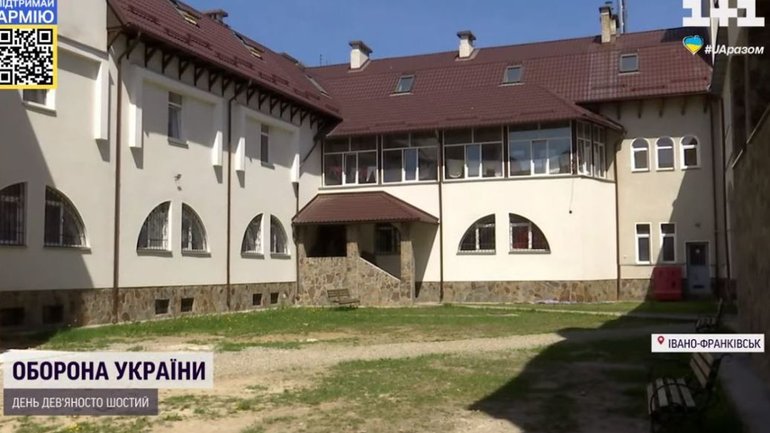In the Carpathian region, monks accommodated a large family of refugees at their monastery

In Ivano-Frankivsk, monks began accepting family-type households that were evacuated from the shelling, because as it turned out, it was a huge problem for such large families to find housing in an oversaturated city. Most of the families who were sheltered here later went to Europe, but Kharkiv residents, even temporarily, refuse to leave Ukraine, reports TSN.
"We had good games – chants. When it started to bang, we would shout and sing songs so that we couldn't hear them," the migrants say.
The Zubenko family did everything possible to ensure that 10 of their children did not realize what war was for as long as possible. Their village in the Kharkiv region is less than 30 km to the border with Russia, so the enemy hit them from the first day of a full-scale invasion. Almost no people came out of the basement - there is no light, no gas, and there is an 18-degree frost outside. "We kept track of the time, we didn't sleep, and we sat with the elders, and every 5 minutes there was a blow. And so it was at night all the time. They understood everything. They could differentiate the sounds of guns and tanks. They knew everything, even a 3-year-old child," says the children's mother.
Zubenko's children are one adopted and 9 foster children. Oksana says that the kids had everything - clubs, singing, dancing, studied well and knew exactly what they would do tomorrow. Russkiy Mir broke everything. It took the Zubenkos a long time to make a decision about the evacuation, but it was growing more and more terrible. Now the mother does not remember how they got ready for the road.
"It is very difficult to get 10 children ready. They're still running around with each other. The older ones helped us, they say: you take the documents, we grab the stuff. What was needed for the younger ones, they collected everything, even medicines. Even the medicines against getting seasick, we even had these medicines," the woman says.
We ran away to nowhere, and found ourselves at the train station in Ivano-Frankivsk and realized that it was a huge problem for such a large family to find shelter in a city saturated with immigrants. The monks helped us: the monastery became a refuge for large families and rehabilitation centers, as well as migrants with animals who were reluctantly settled by the townspeople. Since February, more than three hundred people have managed to live here. The monks converted their recollection Center into a hotel. And the parishioners demolished everything from bed linen to toothbrushes.









